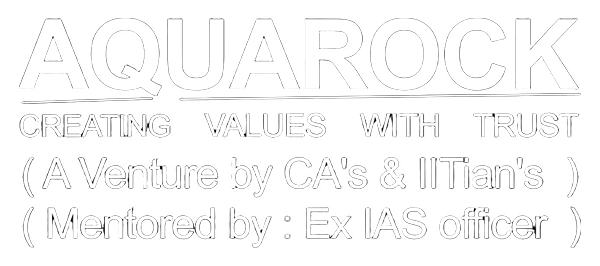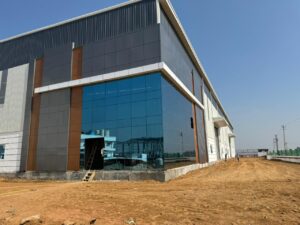Industrial construction in Greater Noida is a significant economic activity, driven by the region’s strategic location, robust infrastructure, and proactive industrial policies of the
Greater Noida Industrial Development Authority (GNIDA). Here’s a comprehensive overview:
Regulations and Permissions Establishing an industrial unit in Greater Noida necessitates compliance with various regulations and obtaining necessary approvals from GNIDA and other relevant authorities:
Land Allotment: The primary step is securing land allotment from GNIDA. They offer industrial plots through schemes and e-auctions.
Building Plan Approval: Before commencing construction, detailed building plans must be submitted to and approved by GNIDA. These plans must adhere to the Greater Noida. Industrial Development Area Building Regulations, 1992, and subsequent amendments, as well as the Building Byelaws 2010. These regulations specify norms for land use, building design, setbacks, height limitations, and fire safety measures specific to industrial structures.
Environmental Clearance: Depending on the nature and scale of the industrial activity, obtaining Environmental Clearance from the Uttar Pradesh Pollution Control Board (UPPCB) is mandatory. This involves submitting an Environmental Impact Assessment (EIA) report if required.
Fire Safety NOC: A No Objection Certificate (NOC) from the Fire Department is essential to ensure compliance with fire safety standards, including the installation of fire detection
and suppression systems, emergency exits, and adherence to fire safety codes.
Electricity Connection: Approval and connection from the local electricity distribution company based on the power load requirements of the industrial unit.
Water and Sewerage Connection: Approval and connection from the relevant authority for water supply and sewerage disposal.
Labor Licenses and Registrations: Compliance with labor laws, including registration under the Factory Act, 1948 (if the unit meets the criteria for a factory), and obtaining necessary licenses for employing contract labor.
Other Statutory Clearances: Depending on the specific industry, other clearances from departments like the Excise Department, Pollution Control Boards (for specific types of pollution), and other regulatory bodies might be required.
Occupancy Certificate: After construction is complete and verified against the approved plans and compliance with all conditions, an Occupancy Certificate from GNIDA is required before commencing industrial operations.
Industrial Construction in Greater Noida has been actively streamlining the approval processes through online portals to facilitate ease of doing business. They also conduct regular awareness programs regarding the necessary regulations and compliance requirements.
Land Acquisition: GNIDA is the nodal agency for the allotment of industrial land in Greater Noida.
Industrial Sectors: Greater Noida is divided into various sectors, with specific zones designated for industrial use (e.g., Ecotech sectors, Surajpur Industrial Area).
Allotment Schemes and E-Auctions: GNIDA periodically announces schemes for the allotment of industrial plots of varying sizes. The allotment process often involves e-auctions to ensure transparency and competitive bidding. Recent schemes have focused on attracting investments in sectors like electronics, food processing, and logistics, with special provisions for MSMEs.
Land Rates: The land allotment rates are determined by GNIDA and can vary based on the sector, plot size, and intended use. These rates are subject to periodic revisions. As of early 2025, industrial land rates in Greater Noida ranged from approximately ₹3,000 to ₹8,000 per square meter, depending on the sector and category.
Incentives and Policies: GNIDA often introduces policies and incentives to attract industrial investment, such as rebates on land costs for specific sectors or early commencement of production. They are also focusing on developing sector-specific industrial parks with plug-and-play facilities.
Cost of Industrial Construction in Greater Noida: The cost of industrial construction in Greater Noida is influenced by several factors:
Land Cost: The price of the land acquired from GNIDA is a significant initial investment.
Built-up Area: The total area of construction directly impacts the overall cost.
Type of Construction: The choice between conventional Reinforced Concrete Cement (RCC) structures and Pre-Engineered Buildings (PEBs) significantly affects the cost and construction timeline. PEBs can often be more economical and faster to erect for certain types of industrial buildings, with structural costs potentially ranging from ₹400 to ₹1,200 per square foot depending on specifications.
Materials and Labor Costs: Fluctuations in the prices of raw materials like steel, cement, and other construction materials, as well as labor wages, will impact the overall project cost.
General civil construction costs in Greater Noida can range from ₹1,500 to ₹3,000 per square foot or higher, depending on the quality of materials and finishes. Industrial construction costs will vary within this range based on the specific requirements of the industrial process.
Internal Fittings and Utilities: Costs for electrical work, plumbing, HVAC systems, fire suppression systems, and specialized industrial fittings required for the manufacturing process need to be factored in.
External Development Charges (EDC) and Infrastructure Development Charges (IDC): GNIDA levies these charges, which are part of the overall project cost.
Obtaining detailed cost estimates from multiple experienced industrial construction companies based on the specific project design and requirements is crucial for accurate budgeting.
Key Advantages of Industrial Construction in Greater Noida.
Strategic Location: Excellent connectivity through the Yamuna Expressway, Eastern Peripheral Expressway, and proximity to Delhi. The upcoming Noida International Airport in Jewar will further enhance connectivity.
Developed Industrial Infrastructure: Greater Noida has well-planned industrial areas with developed infrastructure, including roads, power supply, and water facilities.
Government Support: Proactive industrial policies and investment promotion by the Uttar Pradesh government and GNIDA.
Availability of Skilled Workforce: Proximity to educational institutions and industrial training centers ensures a supply of skilled labor.
Focus on Sector-Specific Development: GNIDA is focusing on developing specialized industrial parks to attract investments in key sectors.
Future Growth Potential: Greater Noida is a rapidly developing industrial and urban center with significant growth potential, especially with the development of the airport region.
In conclusion, undertaking industrial construction in Greater Noida requires a thorough understanding of the regulatory framework, a strategic approach to land acquisition through GNIDA, careful selection of experienced construction partners, and meticulous cost management. The region’s strategic advantages and government support make it a favorable destination for industrial ventures.
+91-9650389757







Add comment